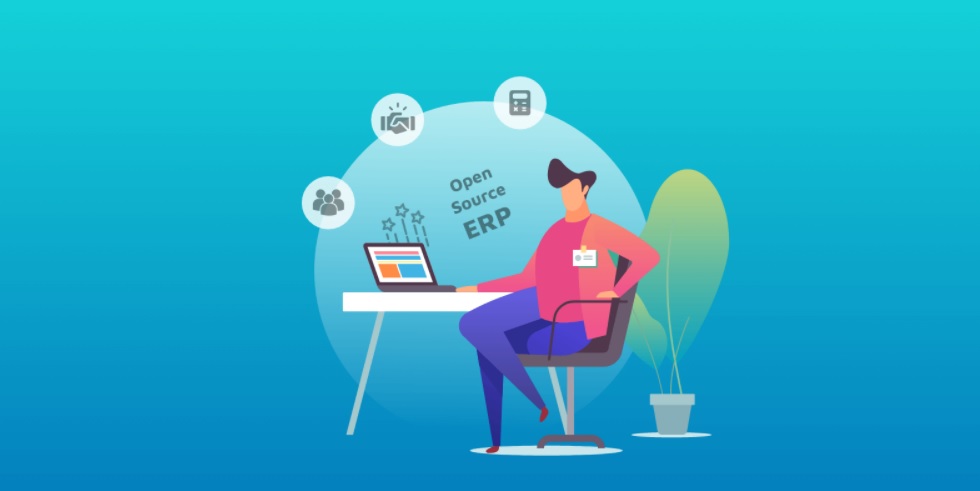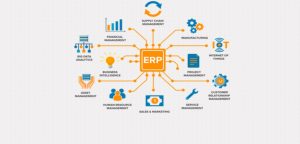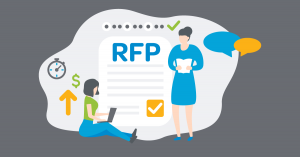The potential upsides of ERP software are immense, but the price tag may be as so. If you’re looking for a more cost-effective approach to attain the same goals, open-source ERP may appeal to you. Today, we look at the advantages and disadvantages of going on this path.
What is Open Source ERP?
A source code is a form of human-readable text produced in a specific programming language used in software development. It specifies the particular rules that your software must follow to operate correctly.
The majority of ERP systems run on closed source software, often known as proprietary software. It implies that the application is traditionally licensed, and users cannot see or change the source code.
On the other hand, Open-source Enterprise Resource Planning is open-source software based on non-proprietary source code that is freely available to the public. It implies that developers may freely examine and change it. They can then distribute new versions or branches that include their improvements.
5 Benefits of Open Source ERP
1. Cost-Effective
A closed source ERP solution prices are just out of reach for many NGOs and small enterprises. An open-source solution can offer many of the same features at a lower cost. These reductions are achievable because open source ERPs do not require traditional license fees.
2. Source Code Flexibility
Open-source ERP software systems are, at their heart, adaptable. Being so implies that your IT staff is free to alter and adapt it to fit the specific demands of your organization. Because open-source systems are generally bare bones, new functions are accessible as free or paid modules. This flexibility is feasible. Furthermore, there is a broad selection of integration formats to pick from, allowing you to select the one that works best for your organization.
3. Ease of Scalability
There are typically no limitations on the number of people you can add or the length of time you may utilize open source ERP software. Its use is limitless by definition, making it simple to enable future growth or upgrade your system without causing an interruption.
4. Increased Customization Control
If you have a proprietary ERP system and wish to adopt it, many parties must approve the choice. This approach is significantly more straightforward and simplified when using an open-source solution. Your team can create customizations without the requirement to work with a software provider.
5. No Need for Formal Software Explanations
Selecting the right ERP for your organization may take time, and vendor explanations might be challenging to organize. An open-source ERP is immediately available via a public database, so you don’t have to wait to see it in action. You can accomplish it all without ever dealing with sales personnel.
Drawbacks of Open Source ERP
1. Vendor Stability Issues
Even the most seasoned and respected open-source software suppliers cannot guarantee the same degree of long-term reliability as a top-tier commercial service. Given this constraint, there is always the possibility that the service you choose will go out of business. Companies may find it challenging to get CEO buy-in as a result of this uncertainty.
2. Lack of Data on Survival Rates
Numerous open-source software vendors have a successful track record. However, their active client base will always be less than that of commercial, closed source suppliers. It implies that there are fewer talks to learn from.
3. Upkeep and Adaptations Can Add Up
The most basic versions of open source ERP software are far less costly than any commercial solution. Be cautious of the strings that come with the low price. You’ll probably end yourself paying more than you intended for unless you’re prepared to change your operations to make the primary version function.
4. No Getting Around for Organizational Change Management
You’ll still need to bring in outside consultants to help with organizational change ERP project management. When estimating how much you’ll save using open-source software, it’s critical to keep these expenses in mind. The human components of your project can be equally as expensive as the proprietary software.
5. The Demand for Skilled IT Professionals
To properly comprehend and execute open source ERP, a high level of technical understanding is required. This sort of in-house technical knowledge is not readily available for many small or medium-sized enterprises. It is especially true if you intend to customize your ERP system.
Is Open Source ERP a Good fit for You?
You may be thinking, “What is open source ERP?” while you evaluate ERP solutions.
We attempted to answer this issue by describing both the upsides and downsides. The conclusion we want you to steal away from this article is that your primary selection criterion should not be pricing.
If this is the case, you may be lured by the promise of “low-cost software,” only to find yourself spending a substantial amount of money designing a system with doubtful feasibility.
Don’t allow this to happen to you. Before making any dangerous decisions, speak with our team of ERP specialists, Connected IT, an Ireland-based business. You may get in touch with us by filling out the form below and seeking a free consultation.
Related Link :
ERP Project Management
Business Process mapping
Small Business ERP
ERP Consulting



